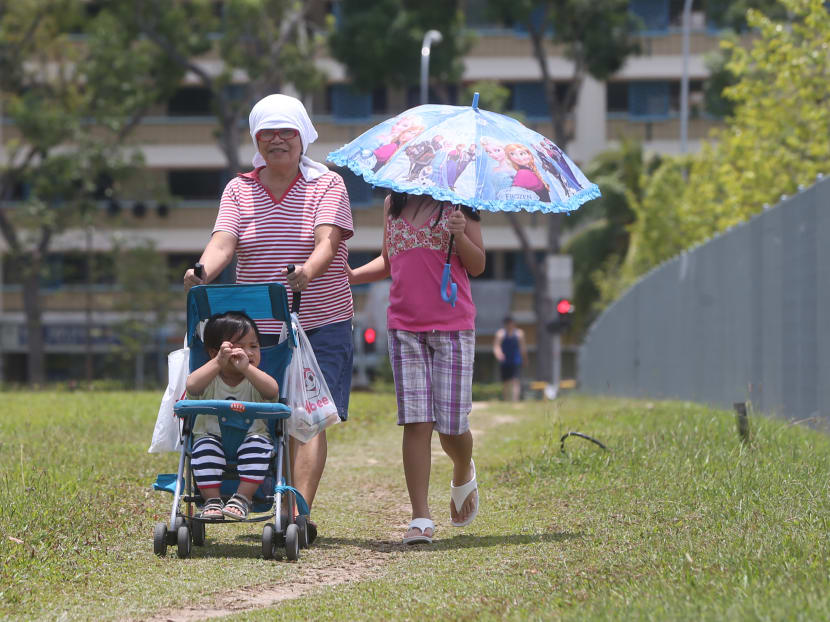Public advised to take care as temperatures soar
SINGAPORE – As the daily average temperature rose to a record high this week, several Government agencies and ministries have issued advisories to schools and the general public to take precautions against the warm weather.
SINGAPORE — With the daily average temperature soaring to a record high earlier this week, several Government agencies and ministries on Wednesday (April 20) issued a joint advisory to the public to take precautions to minimise heat-induced illnesses.
On Tuesday, the Changi climate station recorded the highest-ever daily mean temperature of 30.6°C, beating the previous record of 30.2°C which the station recorded last June. On the same day, the Pasir Panjang weather station, which has been operational since 2010, recorded a temperature of 31.3°C.
The highest daily maximum temperature recorded on Monday was 36°C at Choa Chu Kang. The long-term mean monthly temperature for April is 28°C.

For the rest of the week, high temperatures can still be expected although a gradual easing is likely, based on Meteorological Service Singapore (MSS) forecasts.
Closer to the weekend, more showers may be expected, which would bring a brief respite to the current warm conditions, said a joint advisory from the National Environment Agency and the Health, Manpower, Education, and Social and Family Development ministries.
The advisory said that temperatures in Singapore are not likely to reach 40°C, as recently experienced in northern Peninsula Malaysia, despite the current warm conditions.
This is because of the moderating effect of the surrounding seas on the temperature.
The general public is encouraged to, among other things, wear loose-fitting and light coloured clothing; drink fluids to stay hydrated; and take more breaks between activities.
Sustained outdoor activities at schools, childcare centres and kindergartens should be minimised during hotter parts of the day (between 11am to 4pm), while staff and students are encouraged to drink enough fluids before, during and after exercise to prevent heat injuries.
Employers are advised to schedule heavy physical work or outdoor work to the cooler parts of the day. There should also be shaded areas for work and rest, and cool drinking water provided at convenient and accessible locations.
Residents in children’s and elderly homes — who are more susceptible to heat injury — should stay in well-ventilated rooms and be brought to an air-conditioned room to cool down.
Separately, Chief Army Medical Officer Poon Beng Hoong posted on the Ministry of Defence’s Cyberpioneer Facebook page that the “health and safety of Singapore Armed Forces (SAF) servicemen are of paramount importance”.
Adding that the SAF is “accustomed to training in the heat and is well-equipped to manage the risk of heat injuries”, Col Poon said the SAF has established a work-rest cycle guideline to correspond with the different Wet Bulb Globe Temperature (WBGT) readings, which is a composite temperature of the ambient temperature, wind speed and relative humidity.
In addition to a heat acclimatisation programme, other measures include shorter training intervals when temperatures are high.
Despite the high temperatures in recent days, Singapore is not yet gripped by a heatwave.
In Singapore, a heatwave occurs when the daily maximum temperature is at least 35°C for three consecutive days, and the daily mean temperature throughout the period is at least 29°C, based on readings averaged across three designated stations with long-term temperature records.
Since 1980, Singapore has experienced five episodes of heatwaves, the last one being in 2010. Four of them happened during a very strong El Niño, and the longest heatwave lasted for 16 days in April 1983.












